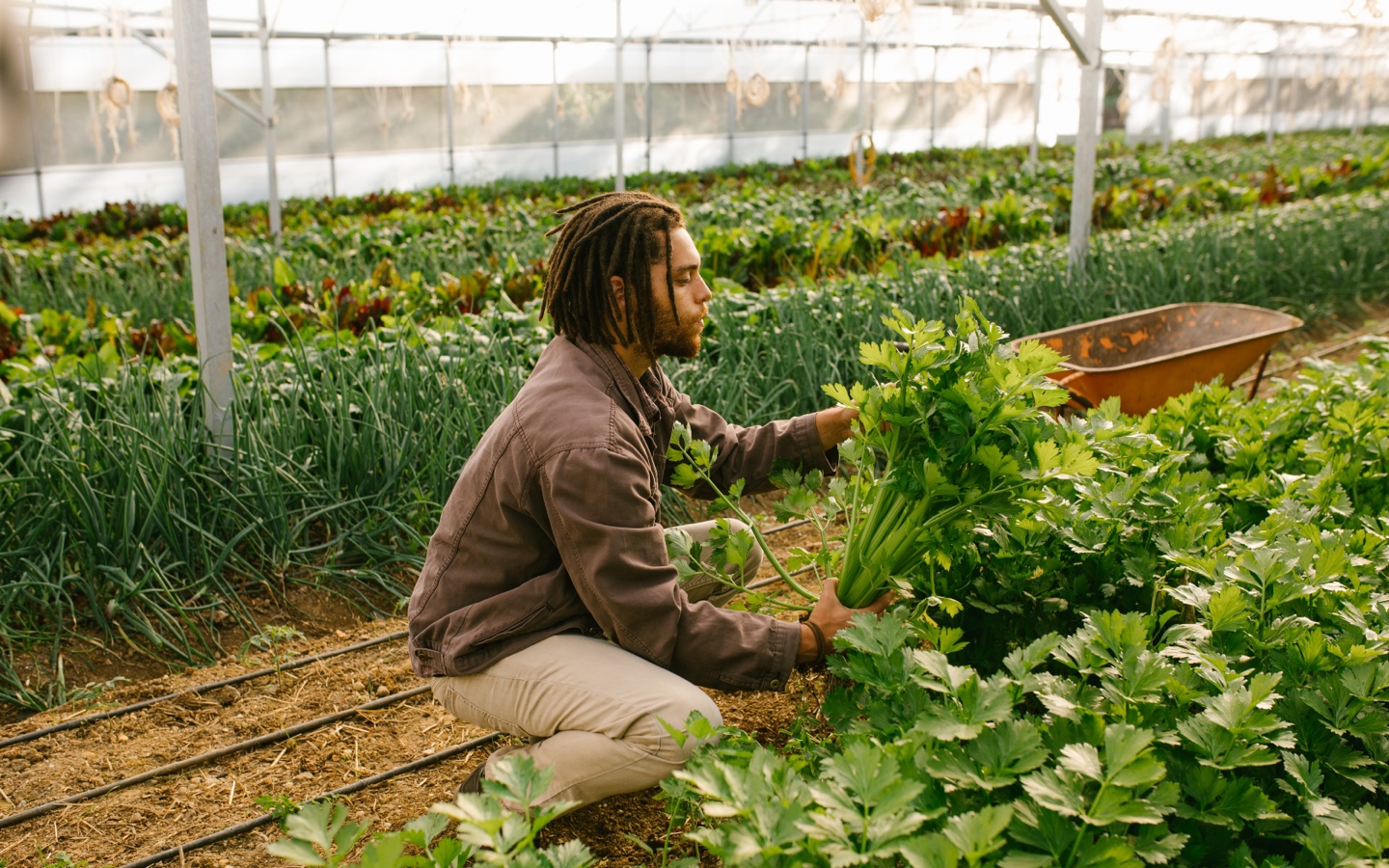Renewed every five years, the Farm Bill will determine the future of small farms, food aid programs, and the impact of agriculture on our climate.
The Farm Bill is about more than just farming. If you haven’t heard of this important and consequential piece of legislation, here’s a quick recap.
In 2014, President Obama bundled policies focused on agriculture, conservation, food assistance, the environment, and energy into one huge piece of legislation known as the Agricultural Act. Then, in 2018, President Trump updated and renamed the act the Farm Bill. Despite the name change, the bill still represents the U.S. government’s largest financial contribution to food and agriculture producers, making it one of the most far-reaching — and thus, slow moving — policies on the books.
The 2018 version was criticized for cutting assistance for food programs and reducing direct aid for small farmers. Updates to the legislation worked mostly in favor of big agriculture businesses and industrial farming — an industry responsible for factory farms linked to animal cruelty and about 11 percent of total overall U.S. greenhouse gas emissions — rather than individual farmers. But overall, climate advocates were relieved that President Trump didn’t alter the bill too much; in sum, it still offered some support for the environment and those who want to protect it.
Congress revisits the Farm Bill every five years, so it’s in the midst of another overhaul that will — hopefully — add regenerative agriculture and carbon capture to its initiatives. Currently, the bill includes 12 topic areas, a few of which are especially key for environmentalists, including conservation, rural development, energy, and forestry. Since the previous version of the bill is set to expire on September 30, 2023, there’s an opening for new policies and negotiations to be added to the mix.

Read more: How the Farm Bill Hurts Small Farmers
Right now, a coalition known as Regenerate America, a group of farmers, businesses, nonprofits, and individuals, is focused on doing just that. The group, which has the support of companies like Avocado, Ben & Jerry’s, Vans, and Applegate Farms, is working to get regenerative agriculture measures added to the 2023 Farm Bill. If Congress approves the measures, advocates say the programming will improve soil health, reduce emissions, and help small farmers by allowing them to focus on practices like livestock integration, composting, crop rotation, and pesticide reduction.
“This is really an opportune moment we have to take a bipartisan approach to something that solves a lot of our crises, but also allows farmers to get out of the hamster wheel of debt and stop increasing their input costs every year,” Finian Makepeace, co-founder and policy director of Kiss the Ground, an advocacy group leading the coalition, told The Hill.
Regenerative efforts promise to reduce costs for small farmers, which are a huge hurdle for those who want to implement low-impact farming methods. Recently, fertilizer prices skyrocketed due to the war in Ukraine, a top fertilizer exporter. Reducing reliance on the import in lieu of regenerative practices would represent a step in the right direction for both farmers and the environment.
But financial support needs to expand significantly if these programs are going to make an actual difference. Earlier this year, one farmer testified that there were more farms interested in regenerative agriculture programs than there was funding. Advocates hope that five to 10 percent of the 2023 bill’s aid will be used to incentivize the implementation of regenerative agriculture techniques, compared to the previous version’s one percent.
Read more: Why Regenerative Agriculture Produces Healthier Soil and Farms
The Biden administration has also been vocal about combating climate change by curbing carbon emissions from farms, which is another hotly contested item on the 2023 Farm Bill agenda, according to CNBC. Proponents of carbon sequestration estimate that farmers could drastically tip the scales by reducing their carbon emissions by about 10 percent — but that will require major changes for individual farmers, like implementing rotational cattle grazing systems (to allow soil and grass to recover) and using compost instead of fertilizers.
Loren Poncia, a fourth-generation cattle rancher, runs a carbon-positive livestock operation in Northern California, and has been vocal about adding this item to the Farm Bill agenda for next year. “It’s a win-win — for the environment and for our pocketbook,” she told CNBC.
If implemented, the U.S. Department of Agriculture would incentivize carbon sequestration to the tune of $30 billion (or more) in the 2023 Farm Bill. It would also push funding toward researching better sequestration practices. But these climate-related efforts are slow-going when it comes to actual implementation, according to Civil Eat’s recap of the first 2022 hearing on the bill. It will take time before we see the climate positive impacts of widespread regenerative agriculture methods and carbon sequestration.

Read more: How To Be a Backyard Carbon Farmer
What can you do? Call your senators to support the addition of these climate-friendly initiatives in the 2023 Farm Bill. (Dial 202-318-1885 to be connected.) And sign on to support the Regenerate America campaign. The general public rarely has a chance to make a difference when it comes to large-scale climate change advocacy, but this is an example where your input and support can help create a better future for people and our planet. You can also follow environment-related Farm Bill updates here.
Have feedback on our story? Email [email protected] to let us know what you think.

Shop Pillows
The Essential Organic Pillow Collection
Gentle, breathable, non-toxic support.





